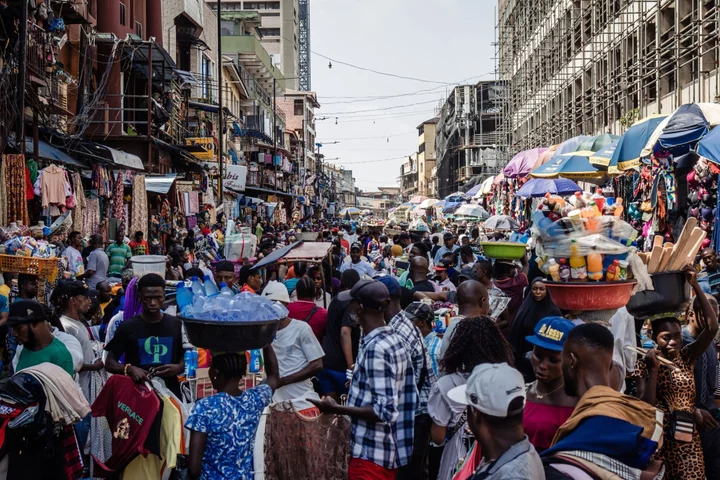Nigeria’s central bank extended its longest phase of monetary tightening to tame inflation, disregarding a call by President Bola Tinubu for borrowing costs to be lowered.
The monetary policy committee raised the benchmark rate by 25 basis points to a record 18.75%. The median of 17 economists surveyed by Bloomberg expected a 50 basis-point increase.
The meeting was the first presided over by acting Governor Folashodun Shonubi, who last month replaced Godwin Emefiele following his arrest on charges of illegally possessing a firearm. Tinubu, who has implemented several reforms including ending fuel subsidies and liberalizing the foreign-exchange market since he took office in May, has said that high interest rates are stifling economic growth and should be lowered to encourage spending.
The balance of arguments around the need to fight inflation, while also supporting investment and a recovery in economic growth, “leaned in favor of a moderate rate hike to sustain efforts aimed at anchoring inflation expectations, narrow the negative real interest rate gap and improve investor confidence,” Shonubi said in Abuja, the capital.
The yield on the nation’s 10-year dollar bonds extended an earlier decline after the decision, falling seven basis points to 10.65% by 5:40 p.m. in Abuja. The rate on the nation’s 2027 debt eased six basis points to 9.92%.
The MPC said it expects the economy to grow 2.66% this year, down from a forecast of 3% in May. Tinubu’s administration is targeting growth of at least 6% a year.
The decision to hike was split. Of the 11 MPC members who attended the meeting, four voted for a 25 basis-point hike, two favored a 50 basis-point increase and the rest preferred a hold.
Rising Inflation
The MPC has increased rates by 725 basis points since May 2022 to rein in inflation that’s been at more than double the top end of its 6% to 9% target range for over a year. Consumer prices rose 22.8% in June — the fastest pace in almost 18 years. The inflation rate has been kept high by rising food prices and is expected to remain elevated for some time.
Money supply rose 32% in June from a year earlier, compared with 14% in May, and gasoline prices have more than tripled since the scrapping of the fuel subsidy. The currency has meanwhile dropped about 40% against the dollar after the easing of foreign-exchange controls last month.
All MPC members also voted to narrow the central bank’s asymmetric corridor, which means the cost at which lenders borrow is at 100 basis points above the monetary policy rate, and the return on their deposits at 300 basis points below the benchmark.
The rate hike will add to other measures taken by the government to try reduce the inflation rate including a state of emergency that would allow the authorities to take exceptional steps to improve food security and supply.
The government has also approved 500 billion naira ($633 million) of spending to cushion the impact of the removal of the gasoline subsidies and raised $500 million to transform food production. Tinubu is also taking steps to improve security in the country, where a decade-long insurgency by Islamist militants and attacks by bandits have curbed farm output.
--With assistance from Simbarashe Gumbo, Paul Richardson and Emele Onu.
Author: Ruth Olurounbi and Anthony Osae-Brown

